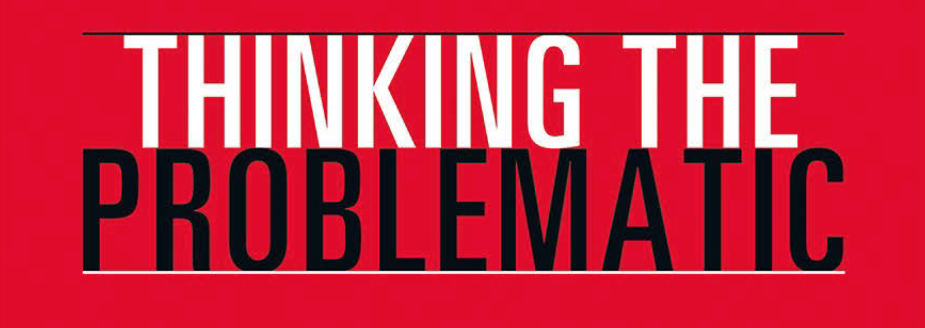Publikation: Christoph Brunner – From Critique to Problems…
Veröffentlichung von Christoph Brunners Sammelbandbeitrag From Critique to Problems and the Politics of the In-act with Bergson, Deleuze and James

Als Teil des Sammelbandes Thinking the Problematic. Genealogies and Explorations between Philosophy and the Sciences, herausgegeben von Oliver Leistert und Isabell Schrickel, erscheint Anfang Oktober 2020 Christoph Brunners Beitrag From Critique to Problems and the Politics of the In-act with Bergson, Deleuze and James.
Zusammenfassung des Sammelbandes
»The notion of »the problematic« has changed its meaning within the history of power and knowledge since the early 20th century, leading up to today's performative, neocybernetic fascination with generalized management ideas and technocratic models of science. This book explores central scenes, conceptual elaborations, and practical affiliations of what historically has been called »the problem« or »the problematic«. By way of considering modes of problematization as modes of inhabitation, intervention, and transformation the contributions map its current conceptual-political uses as well as onto-epistemological challenges. Thus, »problematization« is positioned as a critical concept that links, often in intricate ways, several currents from speculative philosophy to the formation of interdisciplinary fields. The »problematic«, as it turns out, has been the source of change in philosophy and the sciences all along.«
Auszug aus Christoph Brunners Beitrag Introduction – the problem of critique
»I want to start with a productive paradox (or, a problem): In their work on The Undercommons Stefano Harney and Fred Moten begin their exploration of collective forms of resistance from a postcolonial, post-structuralist and post-operaist perspective with the problem of critique. They tie such a con-ception of critique to politics as it emerges with the process of building en-closures (as governable or knowable entities) in the process of settler colo-nialism: ‘Politics is an ongoing attack on the common’ (2013: 17). Such politics based on enclosure mobilize critique as an instrument that is representative of institutional power, as a form of positioning in defense of the enclosure (read as domain, discipline, institution). At the same time, ‘critique lets us know that politics is radioactive, but politics is the radiation of critique [...] Critique endangers the sociality it is supposed to defend’ (2013: 19). By stag-ing this double-edged impasse of critique as necessary and radioactive, the authors erupt the idea of a politics of enclosure and its defense of critique through the image of allied movements: the taking down of critique as a ‘movement’ as the ‘armor of flight’, ‘looking for a weapon and keep running looking to drop it’ (2013: 19). These minor gestures (Manning 2016) of move-ment, flight, the looking for and dropping of a weapon for self-defense all contest a critical thinking based on positions and a politics of enclosures.«
Thinking the Problematic erscheint Anfang Oktober 2020 bei transcript, Bielefeld. Es ist als Taschenbuch für 39€ zu erwerben und in digitaler Version (PDF) kostenlos herunterzuladen.